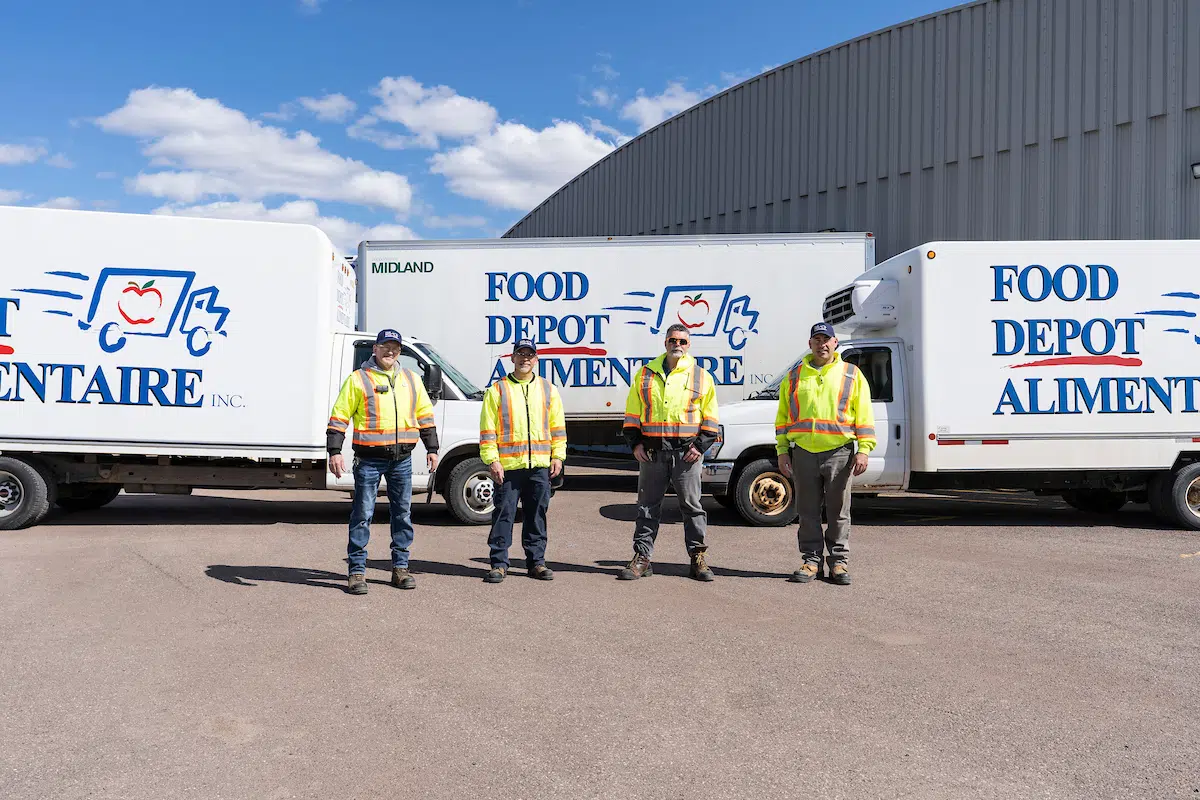Imagine being a single parent out of work because of Covid-19. The stress of making sure your family has food on the table can be overwhelming. New Brunswickers in need are exactly the people that Food Depot Alimentaire continues to help as it celebrates its 15th anniversary, having overcome the challenges brought by Covid-19.
Board president Dale Hicks says things were tough at the beginning of the pandemic. Food banks lost volunteers – some over 50 percent because many of them are seniors who don’t want to risk being on the frontline.
“Many people are out of work and the food banks were going to get busy.”
But FDA has since set up systems to help food banks in the province stay open, and deliver food to those in need.
FDA has been delivering food to five central locations for three years. But in July, it became the official representative of Food Banks Canada in the province, after being handed the role by the New Brunswick Association of Food Banks.
The association had voted overwhelmingly to dissolve at its AGM this summer and to turn over to FDA the role to coordinate and deliver food to approximately 60 food banks, shelters, soup kitchens and school programs across the province.
“It’s a bigger role in terms of having a voice on food security in the province and advocating with government and public awareness around food insecurity in New Brunswick,” says executive director Chantal Senecal.
FDA has been doing that on a smaller scale before, but now it will be easier to advocate for policy changes to systematically reduce poverty and increase food security.
In the spring, FDA expanded its 10,000-square-foot warehouse by 3,000 square feet, allowing it to comfortably store frozen food after its freezer was overloaded.
With a new transportation system in place, FDA also can deliver more food directly to rural and urban communities, rather than to central locations where food banks would have to do pick-ups every month.
“We hit about 90 percent of them, and we’re trying to set up the system so we can get to all of them,” Hicks said.
It acquired one more 5-ton truck, and established a five-day-a-week schedule for deliveries across New Brunswick. That allows FDA to alternate between frozen and dry foods, and produce deliveries each week.
On the other hand, FDA helped ensure food banks can continue to run without as many volunteers on site by using pre-packaged boxes and hampers that are delivered to clients’ doors.
“We were able to get community volunteers to help us do that, and at this point in time, most of our volunteers are back and helping us in the warehouse and within the food bank network as well,” Senecal said.
FDA also helps the food banks with community engagement and best practices like community kitchens and gardens, and other services.

Dale Hicks and Chantal Senecal. Image: Dale Preston
Food Bank Usage Will Ramp Up In Winter
Public awareness about food insecurity during the pandemic had led to corporate sponsors like JD Irving Ltd. and The McCain Foundation quickly stepping up with a $1-million donation each to support FDA’s work. Those donations came just days after a $100,000 contribution from former premier Frank McKenna and wife Julie.
They triggered other donations from businesses. In addition to federal funding through Food Banks Canada, those donations placed FDA and the food banks it serves on solid financial footing going into 2021.
This is going to be helpful because Hicks said that although the initial spike in food bank usage died down after the federal government announced initiatives like the Canada Emergency Response Benefit, it’s expected to ramp back up when the program ends this fall.
As winter draws near, there’s also concerns about businesses closing down and leading to layoffs.
But FDA is prepared for that, and a possible second wave of Covid-19.
It has ensured food banks have proper health and safety protocols, and an operational plan in case of increased demand and loss of volunteers.
“Because we’re an essential service, we won’t be shutting down,” Senecal said. “We’re just ensuring that the food continues to pull out of the banks at the same capacity at the very minimum, and then if an increase is needed, we’re going to have to make sure that demand is met.”
Individuals who want to support FDA can buy 50/50 tickets from Needs stores in Southeast New Brunswick. The seven-year program contributes to about half of FDA’s overall revenue, Hicks said.
This story is sponsored by Food Depot Alimentaire.







